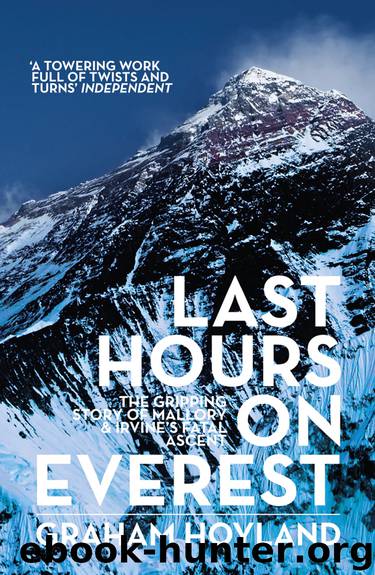Last Hours on Everest by Graham Hoyland

Author:Graham Hoyland
Language: eng
Format: epub
Publisher: HarperCollins Publishers
Published: 2013-02-18T05:00:00+00:00
We had joined the 1990 Earth Day 20 International Peace Climb, a combined American–Soviet–Chinese trip led by Jim Whittaker, the first American to climb Everest. It was the first time that the three nations had collaborated to climb a mountain. The plan was to bring together mountaineers from Cold War enemy nations to show what could be accomplished through cooperation. As Whittaker wrote in the 1991 American Alpine Journal, ‘This was before glasnost, before perestroika, before the Reagan–Gorbachev summit, before Gorbachev went to Beijing. We would hold the summit of all summit meetings, enemies becoming friends.’
The International Peace Climb certainly required diplomatic leadership. We were in Chinese-controlled Tibet, and the Chinese had not allowed Soviets on their soil in 30 years. Whittaker went to both countries to get their leaders’ support, and it was a laudable effort on his part.
But it wasn’t entirely peaceful. Whittaker had to leave the expedition early on with a medical problem and returned two weeks later to find several disputes brewing. Some of the Soviet climbers – who, frankly, were prima donnas – objected to doing the washing-up, presumably because back home they would have staff to do that sort of thing. Some Chinese climbers were seen hiding food up the hill behind boulders, and some of the Americans complained that they were paying for everything. I witnessed one fist-fight, but the trip was successful in that it got 20 climbers to the top – the highest number on a single expedition thus far. Ed Viesturs, a 30-year-old veterinary surgeon from Seattle, was there on his first Everest summit, and he would go on to climb all the 8,000m peaks without supplementary oxygen. Our filming expedition was a small side-show, although Breashears was clearly respected by the international climbers.
One day we walked up to the main camp with our team to film a satellite phone-call that Whittaker was to make to President George H. W. Bush (the father). As we approached we saw a cluster of worried-looking climbers standing around the vital petrol generator that was supposed to power the presidential call. One by one they would pull on the starter-cord and the engine would run for a minute. Then it would die. Apparently they had tried everything: fresh fuel, fresh oil, new plugs, and so on. But it wouldn’t keep running, so the call was off.
As the crowd melted away I decided to take a look, being something of a mechanic. I noticed there was a pair of wires disappearing into a switch mounted on the oil-pan that was designed to turn the engine off if the oil level fell dangerously low. The level was OK on the dip-stick, but what if the switch was faulty? I removed the wires and joined them. Then I pulled the engine into life. It ran – and kept on running. The crowd re-gathered, and our filming was back on. During the satellite call I noticed that Whittaker told the president that ‘his team’ had fixed the problem.
Download
This site does not store any files on its server. We only index and link to content provided by other sites. Please contact the content providers to delete copyright contents if any and email us, we'll remove relevant links or contents immediately.
Annapurna by Maurice Herzog(3464)
Into Thin Air by Jon Krakauer(3384)
SAS Survival Handbook by John 'Lofty' Wiseman(2715)
The Ogre by Doug Scott(2679)
Everest the Cruel Way by Joe Tasker(2338)
Reservoir 13 by Jon McGregor(2300)
The End of Eddy by Édouard Louis(2199)
Touching the Void by Joe Simpson(2127)
The Push by Tommy Caldwell(2035)
Iced In by Chris Turney(1998)
The Isle of Mull by Terry Marsh(1945)
The Call of Everest by Conrad Anker(1907)
Miracle in the Andes by Nando Parrado(1904)
Touching the Void (1987) by Joe Simpson(1835)
Mud, Sweat, and Tears by Bear Grylls(1656)
Himalaya Bound by Michael Benanav(1600)
Higher Calling by Max Leonard(1574)
Death Grip by Matt Samet(1490)
Backcountry Bear Basics by Dave Smith(1466)
